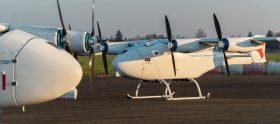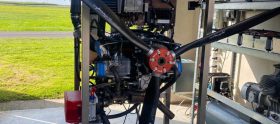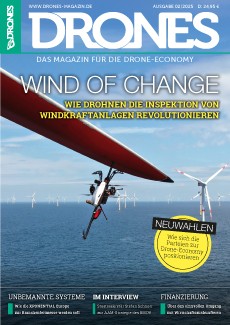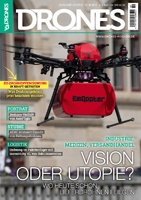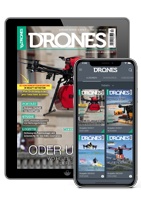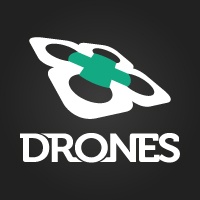Whitepaper: Aviation experts on how to find the right supplier for commercial AAM and UAV projects
Whitepaper: Aviation experts on how to find the right supplier for commercial AAM and UAV projects Ambitious UAV (uncrewed aerial vehicles) and AAM (advanced air mobility) projects aim high – and require confidence and reliability in all components. On the way to get ready to take-off as commercial air taxi or transport drone, the regulations and requirements are even more complex. Only certification of aviation safety authorities like FAA and EASA can give visionary aircraft programs the necessary momentum they need to get an official operating permit.
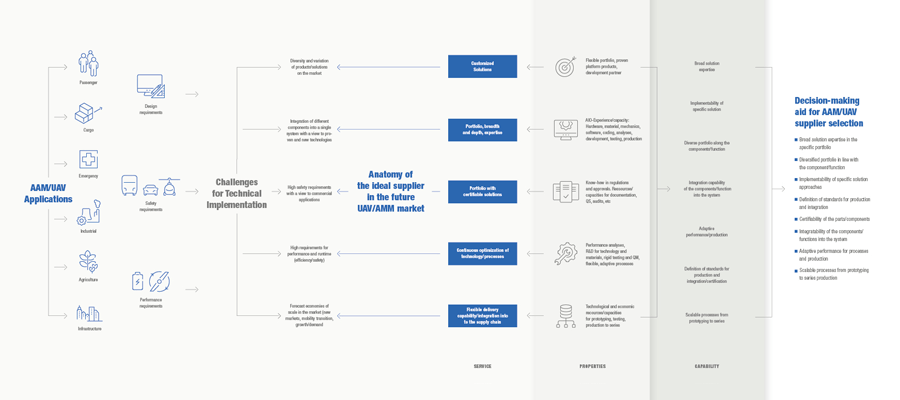
In a detailed Whitepaper by Volz Servos, aerospace professionals tell what are the basic prerequisites for achieving certification for a new flight system how important the role of suppliers is regarding this certification process and how big players in aviation as well as agile start-ups can identify the right partners for their projects
What the experts say
UAM stands for Urban Air Mobility. As the world's urban population grows, transportation in these areas is expected to become even more challenging than it is today, as EASA (European Union Aviation Safety Agency) notes in its UAM overview (https://www.easa.europa.eu/en/light/topics/urban-air-mobility-uam). Examples of UAM applications include air taxis connecting destinations in a large city, or remotely piloted or autonomous aircraft delivering medical supplies or technical equipment in populated areas.
This market is characterized by a high level of dynamic development with very ambitious schedules. However, in the Whitepaper interviews, all experts emphasize how important the early consideration of certification is in the development of air mobility projects.
Or, as Aerospace Engineer Mike Hirschberg, Executive Director of the Vertical Flight Society, says: “It is one thing to develop and fly a drone for delivery. But for a small passenger carrying aircraft or for operation in urban areas you must make it so safe that it’s certifiable.”
“Advanced Air Mobility currently shaping a huge new economic ecosystem that, unlike in the past, requires low capital investment, enabling faster realization of innovative aviation technologies. The main market challenges now lie in aviation approvals and regulatory frameworks, which is why companies should engage with certified suppliers prior to development”, summarizes Prof. Dr. Florian Holzapfel, Professor of Flight System Dynamics at the TU Munich.
The basic prerequisites to achieve certification for a new flight system:
compliance with civil aviation standards
complete documentation
and components from EASA-approved production organizations
The requirements are extremely complex and demand specialized expertise and experience as well as supplier partners who fulfill these prerequisites.
How to find the right supplier to let ambitious aviation projects take-off: The Volz Servos Whitepaper offers valuable insights from experts in business and science.
About Volz Servos
Over 40 years of experience in the development, manufacture, and delivery of actuators for a wide range of applications – from medical to robotics to UAV – provides Volz with the reputation that customers around the world rely on today. Together with the subsidiary Aircraft Electronic Engineering GmbH (AEE), an EASA approved production (Part 21G), maintenance (Part 145), and alternative design organization (Part 21O), Volz offers the full range of certifiable solutions. The combination of the agility as a family-run, medium-sized company and certification security is a major advantage over suppliers with corporate structures.
www.volz-servos.com
www.aee.aero
Im Drones PR-Portal erscheinen Nachrichten und Meldungen von Unternehmen aus der Drone-Economy. Für die Inhalte der Pressemitteilungen sind die jeweiligen Unternehmen verantwortlich.


